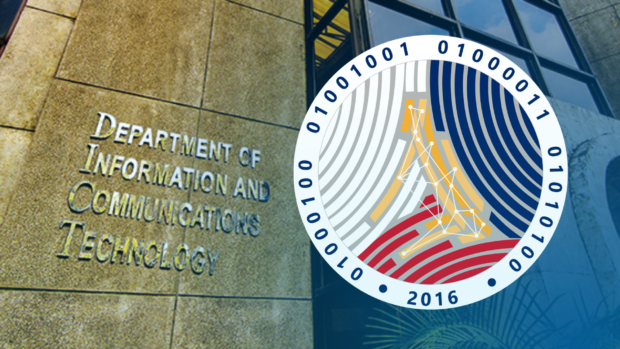Solons tell DICT settle billions worth of payables using unutilized funds
MANILA, Philippines — Lawmakers urged the Department of Information and Communications Technology (DICT) to settle the agency’s payables to telecommunication companies from the WiFi program now running at more than P3 billion.
Lawmakers like Northern Samar 1st District Rep. Paul Daza and Marikina 2nd District Rep. Stella Quimbo prodded the department during the hearing of the House committee on appropriations on Thursday, after learning that DICT has a low fund utilization but actually had around P3.5 billion worth of payables.
The payables were for the Free Public WiFi program, where the government tapped private companies including big telcos as the DICT still did not have its own bandwidth.
The lack of payments to the local and big telcos have forced the private firms to cease operating Free WiFi stations across the country.
“So why don’t you pay the P3.5 billion? My understanding is, it’s a chicken-and-egg, they’re having a hard time implementing because no one will bid for the Free public wifi to connect because there are payables to the large telcos who provide for now, the bandwidth. Because we still don’t have the national broadband eh, that should have be from the free bandwidth from Facebook,” Daza said.
When DICT Assistant Secretary Heherson Asiddao said that the department had payables of around P1 billion and P500 million to major companies like PLDT, Inc. and Globe Telecoms, respectively, Quimbo asked why this was the case when DICT’s fund utilization was low.
Earlier in the hearing, Asiddao already admitted that they have a low utilization rate because they are still in the process of reorganizing the projects that the past administration left behind — to ensure a more efficient and beneficial project implementation.
READ: DICT draws flak for underutilization of budget; blames ‘problems’ of past admin
“You have payables? You have so much money but you have utang (loans)?” Quimbo asked Asidao.
“We do have a lot, vice chairperson,” Asidao replied.
“What happened chairman, vice (chair), just so we can implement the free public wifi, they bidded out small players in the area […] they were not paid, so the large telcos weren’t also paid, so now nobody wants to do free public wifi. Is that more or less a fair statement?” Daza asked Asidao.
“That’s a very fair statement, Mr. Chair, that’s our dilemma right now,” Asidao answered.
Both Daza and Quimbo then prodded the agency to pay the companies so that free WiFi will be available, and that private companies would have funds to use.
“Kaya nga, you have so much money, pay them, we already had this discussion last October, you know the businesses are hurting (pero) ang daming (niyong) pera. You would be helping these large companies so they don’t retrench. You help the private and then now you can partly solve the issues on the implementation of Free Public WiFi,” Daza noted.
Bigger problem?
However, DICT appears to be facing a bigger problem: Asiddao said that after doing a “house cleaning”, they found out that the past administration actually had payables to companies who did not enter a contract with the department.
The total amount of undocumented payables go around P1 billion.
Asiddao told Daza that the proper course of action for telco companies is to file a claim from the Commission on Audit (COA) so that they can obtain their payments. However, the Northern Samar lawmaker stressed that COA’s intervention is only needed if DICT is disputing the payments.
Daza and Quimbo also urged DICT to tackle the problem of payables one at a time — which is to look at the less-complicated documented payables first, and address the undocumented transactions later on.
“The recent course of action for the supplier or the service provider (is) to file a claim from COA, so it’s not incumbent upon us to do that,” Asiddao said.
“Wait a minute Asec: you’re partially correct, if there’s a dispute in the case, you still need COA clearance. But if you’re not disputing it, pay it. Let’s forget the undocumented, let’s do the easiest: you said there’s P3.5 billion documented […] Why don’t we pay them, that’s easy to do,” Daza said.
Asiddao said that they are slowly paying the companies with documented contracts, although they are waiting for the Department of Budget and Management (DBM) to release funds by the third quarter of 2023.
“We are slowly settling the clean payables. For free wifi Madam, the source of the fund has been expired already as of December 31 (2022). It was previously allocated there,” Asiddao said.
“Actually that’s one of our program […] as you know Madam Chair, Mr. Chair, we are paying based on released cash from the DBM, so that the third quarter of this year, makakapagbayad na po kami (we can pay),” he told Quimbo.
Earlier, the DICT’s presentations showed that for the allocations in 2022 and the continuing fund for 2023, only three percent of the P827 million ICT and Cybersecurity Policies Development and Management budget under Program 1 (ICT Governance Program) has been obligated, and two percent disbursed.
Moreover, under Program 3 (ICT Capability Development), only 11.40 percent of the P146 million funds for Industry and Countryside Development in 2023 was obligated, and only 5.25 percent was disbursed.
Daza was one of the first to uncover problems regarding DICT’s budget use. In November 2022, he delivered a privilege speech questioning DICT’s fund transfers to the Metropolitan Manila Development Authority (MMDA), tagging it as illegal and irregular.
The funds have been returned to the treasury, DICT said.
READ: Solon questions DICT, MMDA for transferring fund for free wifi program sans Congress nod
DICT said that they are rectifying problems in the projects that were started during the past administration.
READ: DICT admits to House: Our budget utilization was ‘pitiful’
